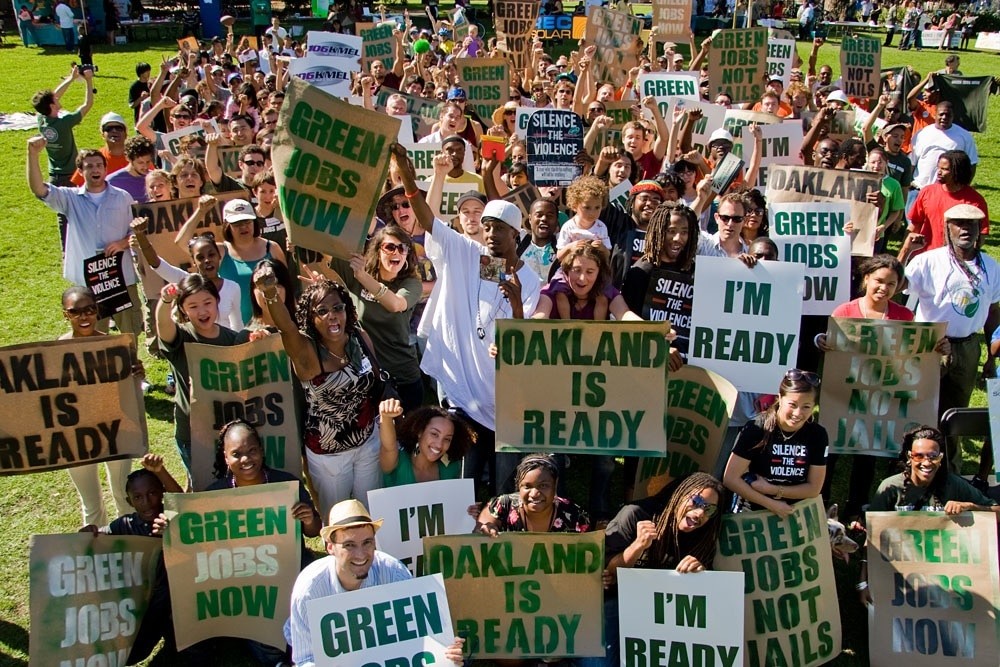Photo of Rep. Alexandria Ocasio-Cortez (D-NY14) https://en.wikipedia.org/wiki/File:Alexandria_Ocasio-Cortez_Official_Portrait.jpg
It is rare for a piece of proposed legislation to go viral, but that is exactly what is happening with the Green New Deal.What is it? One version being championed by freshman New York Representative and progressive firebrand Alexandria Ocasio-Cortez would see the US transition to 100 percent renewable energy in just ten years. It also seeks to create a federal jobs program on a scale not seen in generations. Woven into the proposal is an emphasis on economic, social, and environmental justice.The world is sprinting towards climate catastrophe, the argument goes, and only sweeping proposals that address the seriousness of the crisis are worthy of consideration. Any plan must disproportionately benefit those who stand to lose the most due to climate change and a greening economy. Young people — especially those too young to vote — are among the Green New Deal’s most ardent advocates, perhaps because they recognize that the status quo threatens them most directly.

Initiatives like #GreenForAll tap into grassroots support for a comprehensive plan for economic and social change at a scale to stop or reverse climate change. Photo courtesy of #GreenForAll.Whether you support large progressive programs or not, it is notable that this ambitious proposal is beginning to adhere in the public mind. Pollsters at Yale recently discovered that a majority of voters in both parties support the Green New Deal. A series of dire reports from the the U.S. and the U.N. seem to have galvanized that portion of voters who wish to continue to live on a stable planet.But while the basic outlines of the deal — decarbonization, a massive jobs program and justice — are well established and broadly popular, virtually all of the details still need to be filled in. That process is happening in real time as different takes on what the Green New Deal should actually be ping pong through D.C. and beyond.Activists pushing their own sweeping version have met with a number of Democratic 2020 hopefuls. The U.S. Green Party has a version that includes support for a Voter Bill of Rights. Researchers and policy wonks have begun throwing their voices into the public arena, too.This legislative momentum presents a tremendous opportunity for those who believe that biology has something to teach us about living sustainably on this planet.
There’s nothing greener than biology
There is nothing “greener” than biology. In the world of bugs, bushes and bacteria, carbon is a currency, not a pollutant. It is only when carbon cycles are radically disrupted (by tossing billions of tons of carbon dioxide into the atmosphere, for example) that ecosystems get thrown off balance. Studying biology and copying its rulebook promises to shrink the gap between our modern economy and the natural world.Green innovation has never been more needed. If we are going to break free from our petroleum addiction, alternative routes to fuels and everyday goods like plastics, diapers and cosmetics must reach consumers quickly. Carbon capture at scale may also be essential if we are to keep warming under 2°C.Biofuels already offset gasoline consumption by about 10%, a figure that is slowly but steadily rising. But how biofuels get produced has an enormous impact on their overall environmental impact. Innovation in crop science, fermentation, enzyme design and metabolic pathway engineering accelerate our shift from fossil fuels.Aviation fuel is prime for disruption as it remains unclear whether commercial planes will ever run off battery power or go solar. High-energy combustible fuels made from carbon pulled from the atmosphere by living cells would enable rapid global transportation without rapid global destruction.But biotechnological innovation is complex and expensive, and scale is almost always hard to achieve. As with other high-risk, high-reward ventures, there are dozens of failures, either in the form of fruitless research threads or puttered-out companies. The Green New Deal, however, could be used to direct a floodlight of public support and a torrent of federal funds towards the development of biobased green solutions.If biotechnologists really believe science can help save the day, they should consider championing a Green New Deal that embraces research and the creation of high-skilled jobs that would positively impact all communities.Any federal program that aims to support large-scale innovation will meet mixed results. The federally backed solar panel manufacturer Solyndra famously went down in flames — but the same programs also gave rise to Tesla. The prior administration also directed $400 million of stimulus spending into ARPA-E, the environmental analog to DARPA, which has helped support synthetic biology wunderkind Ginkgo.
Going green together
The Green New Deal does not have to be about moving the country to the left or right. There is already bipartisan support for it, and climate change demands that we all move forward together. Now is the time to make the benefits of biotechnology known. Write a white paper. Call your congressperson. Make your work and your voice known.This battle of ideas over what to do about climate change will be won by someone. If anti-science activists dominate the conversation, unsupported fears over biotechnology could forestall biobased solutions. Synthetic biologists should recognize this, and the fact that the public is often skeptical of what we do.It is up to us to make our case. A closed-door, move-fast-and-break-things attitude did not win Facebook and other digital firms broad public support. Rather, we must reaffirm our shared values and the promise to use our science, engineering and technology for public needs. The transition out of the fossil fuel era cannot happen soon enough. Let’s work to ensure that the era of biology comes next.Join SynBioBeta’s John Cumbers for a special Green New Deal Town Hall, a webinar live from Washington D.C. on Tuesday February 5 at 9am Pacific / noon Eastern to share your ideas for how synthetic biology can contribute to a program for economic and social change at the scale needed to stop the climate crisis.


















